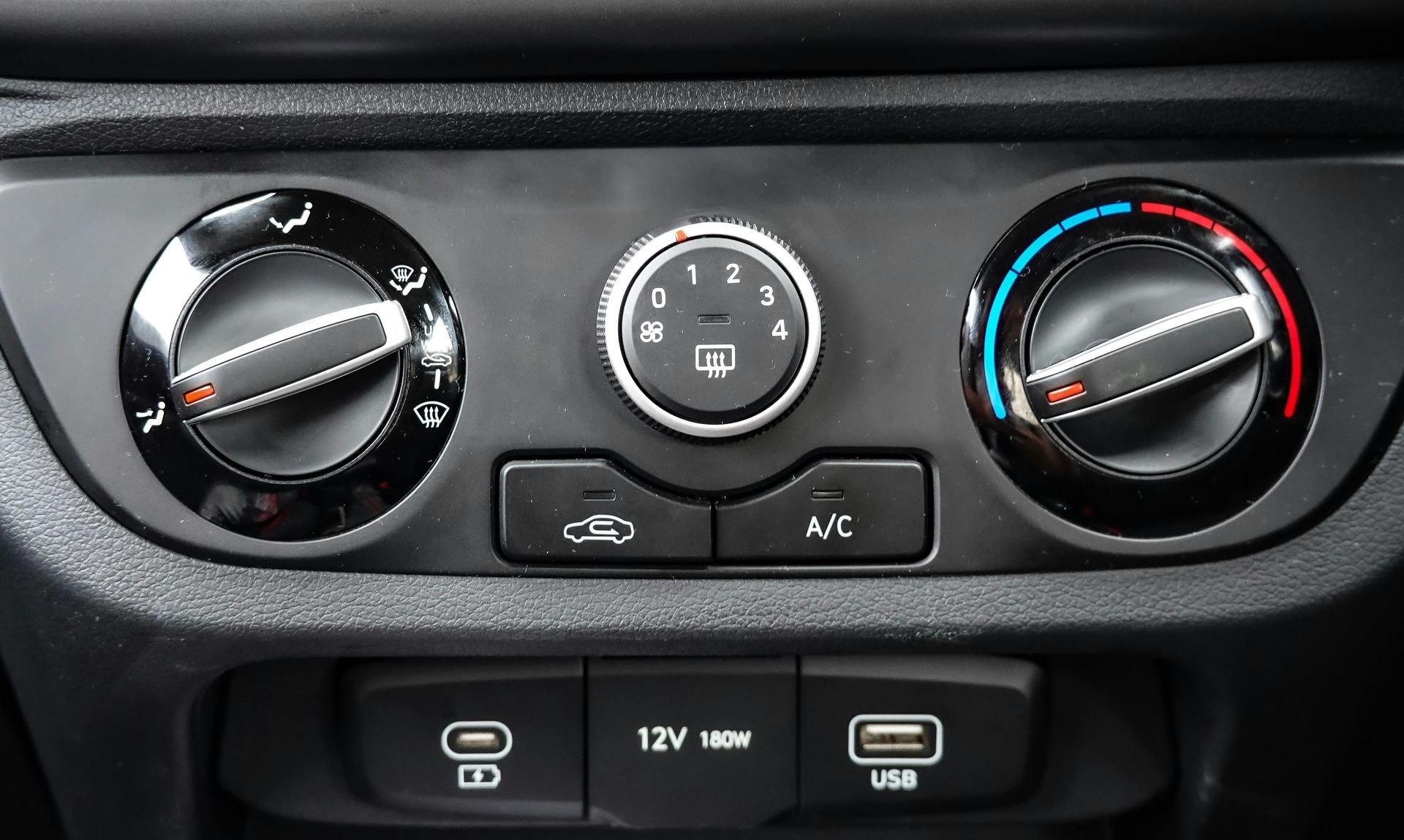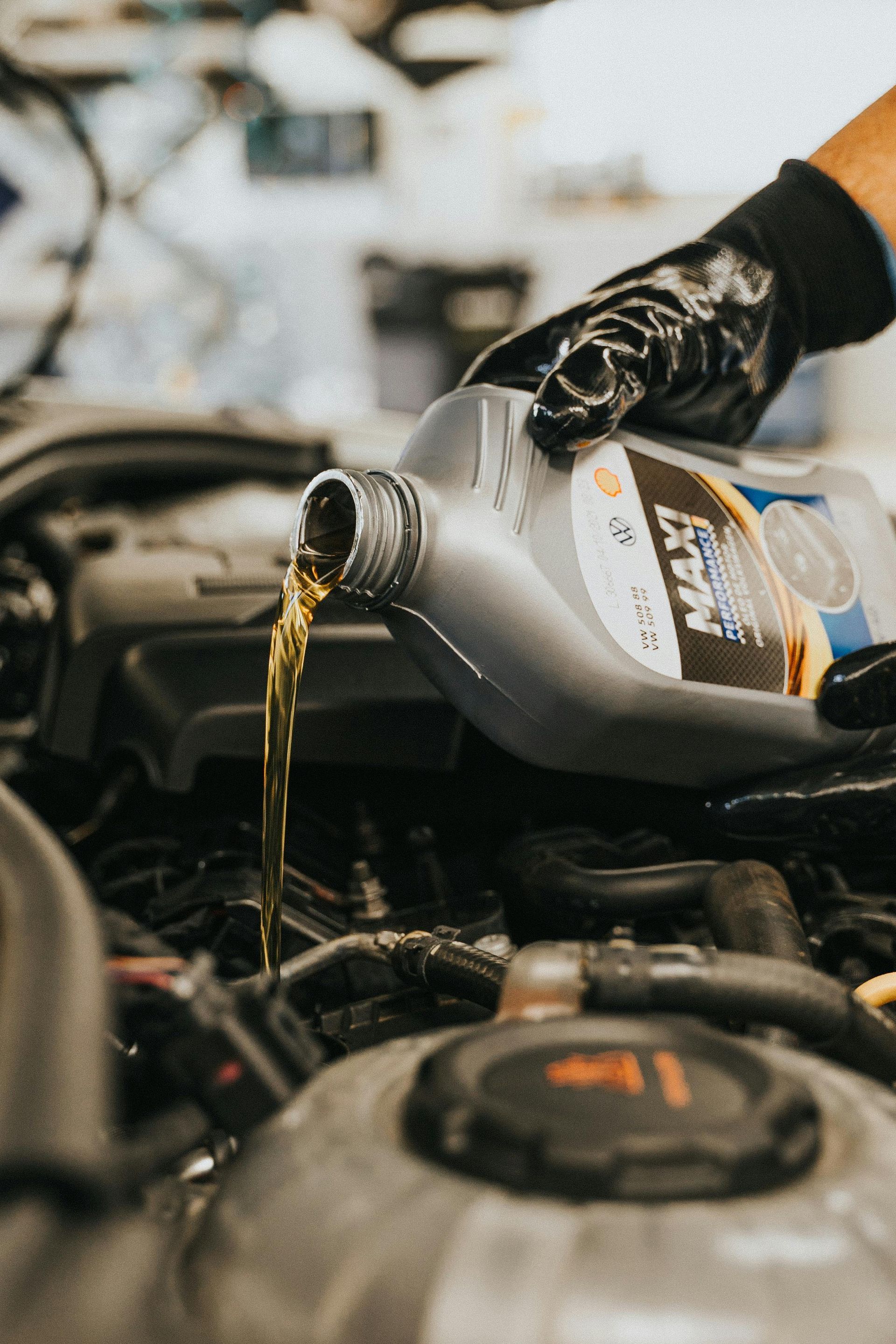Synthetic vs. Conventional Oil: Which Is Right for Your Car?
When it comes time for your next oil change in Colorado Springs, you'll likely face a choice between conventional and synthetic oil. This decision can impact your vehicle's performance, maintenance schedule, and long-term engine health – especially given our unique local driving conditions. Understanding the differences between these oil types can help you make the right choice for your specific vehicle and driving habits.
What's the Difference Between Synthetic and Conventional Oil?
Before diving into recommendations, let's clarify what sets these oil types apart:
Conventional Oil is refined directly from crude oil. It provides basic engine protection but contains natural impurities and molecules of inconsistent sizes.
Synthetic Oil starts with a base of highly refined crude oil or other raw materials that are then chemically processed, engineered, and uniformly structured. This creates consistent molecular structures with fewer impurities.
Synthetic Blend Oil combines conventional and synthetic oils to provide some enhanced protection at a price point between the two options.
How Colorado Springs Driving Conditions Affect Your Oil Choice
Our local environment creates unique challenges that directly impact how oil performs in your vehicle:
Extreme Temperature Swings: Colorado Springs can experience temperature variations of 40+ degrees in a single day. Synthetic oils maintain their viscosity (thickness) better through these dramatic shifts.
High Altitude Demands: At over 6,000 feet elevation, our engines run differently than at sea level. The thinner air means engines often work harder, creating more heat that can cause conventional oils to break down faster.
Mountain Driving: Whether you're heading up to Pikes Peak, Woodland Park, or the ski resorts, the ascents and descents around Colorado Springs put additional strain on your engine and oil.
Seasonal Considerations: Our winter temperatures, which can drop well below freezing, demand an oil that flows quickly to critical engine parts during cold starts – a strength of synthetic oils.
Advantages of Synthetic Oil for Colorado Springs Drivers
Better Cold-Weather Performance: Synthetic oil flows more easily at startup in cold temperatures – a significant advantage during our winter months when conventional oil can thicken and flow too slowly to protect critical engine components.
Superior Heat Resistance: When climbing mountain passes or sitting in summer traffic, engine temperatures rise. Synthetic oils resist breaking down at higher temperatures, maintaining protection when conventional oils might fail.
Longer Change Intervals: While conventional oil typically needs changing every 3,000-5,000 miles, many synthetic oils can last 7,500-15,000 miles between changes. For busy Colorado Springs residents, this means fewer maintenance stops.
Cleaner Engine Performance: Synthetic oils contain fewer impurities and resist sludge formation better, keeping engines cleaner internally – particularly important for vehicles frequently making short trips in cold weather.
Improved Fuel Efficiency: The reduced friction from synthetic oil's smoother molecular structure can improve fuel economy by 2-3% – savings that add up over Colorado's long mountain drives.
When Conventional Oil Might Be the Right Choice
Despite synthetic oil's advantages, conventional oil remains appropriate in several scenarios:
Older Vehicles: If you drive an older car with high mileage that has always used conventional oil, switching might not be necessary or beneficial.
Budget Considerations: Conventional oil changes typically cost $25-50 less than synthetic options, making them more budget-friendly for vehicles that don't face extreme conditions.
Manufacturer Specifications: Some vehicles are specifically designed to run on conventional oil, though this is increasingly rare in newer models.
Short Ownership Timeline: If you plan to sell your vehicle soon and it's currently using conventional oil without issues, there may be little benefit to switching.
Special Considerations for Colorado Springs Vehicles
Turbocharged Engines: Many newer vehicles feature turbocharged engines that run hotter – a growing trend at our altitude where turbochargers help compensate for thinner air. These engines almost always benefit from synthetic oil's better heat resistance.
Stop-and-Go Driving: If your commute involves heavy traffic on I-25 or Powers Boulevard, the frequent stopping and starting creates more heat and stress, making synthetic oil advantageous.
Extended Idling: Cold winter mornings often mean extended warm-up periods for many local drivers. This type of idling can be particularly hard on conventional oils.
Towing and Hauling: If you use your vehicle for towing camping equipment to the mountains or hauling landscaping materials, the additional strain makes synthetic oil's superior protection valuable.
Making Your Decision: A Local Perspective
When deciding between oil types, consider these factors:
- Check your owner's manual first – manufacturer recommendations should be your primary guide
- Consider your driving patterns – mountain driving, extreme temperatures, and short trips favor synthetic oils
- Factor in your vehicle's age – newer vehicles often benefit more from synthetic options
- Evaluate the long-term cost difference – while synthetic oil changes cost more upfront, extended intervals can make them comparable in annual cost
Need Expert Advice on the Right Oil for Your Vehicle?
At Action Automotive Service, we understand the unique demands Colorado Springs' climate and terrain place on your vehicle's engine oil. Our experienced technicians can help you select the optimal oil type based on your specific vehicle, driving habits, and local conditions.
Don't compromise your engine's protection with the wrong oil choice. Contact us today at (719) 633-0008 or visit our convenient location at 3335 Fillmore Ridge Heights for professional guidance and quality oil change services. Whether you choose synthetic or conventional oil, we'll ensure your engine gets the protection it needs for our challenging Colorado driving conditions.












